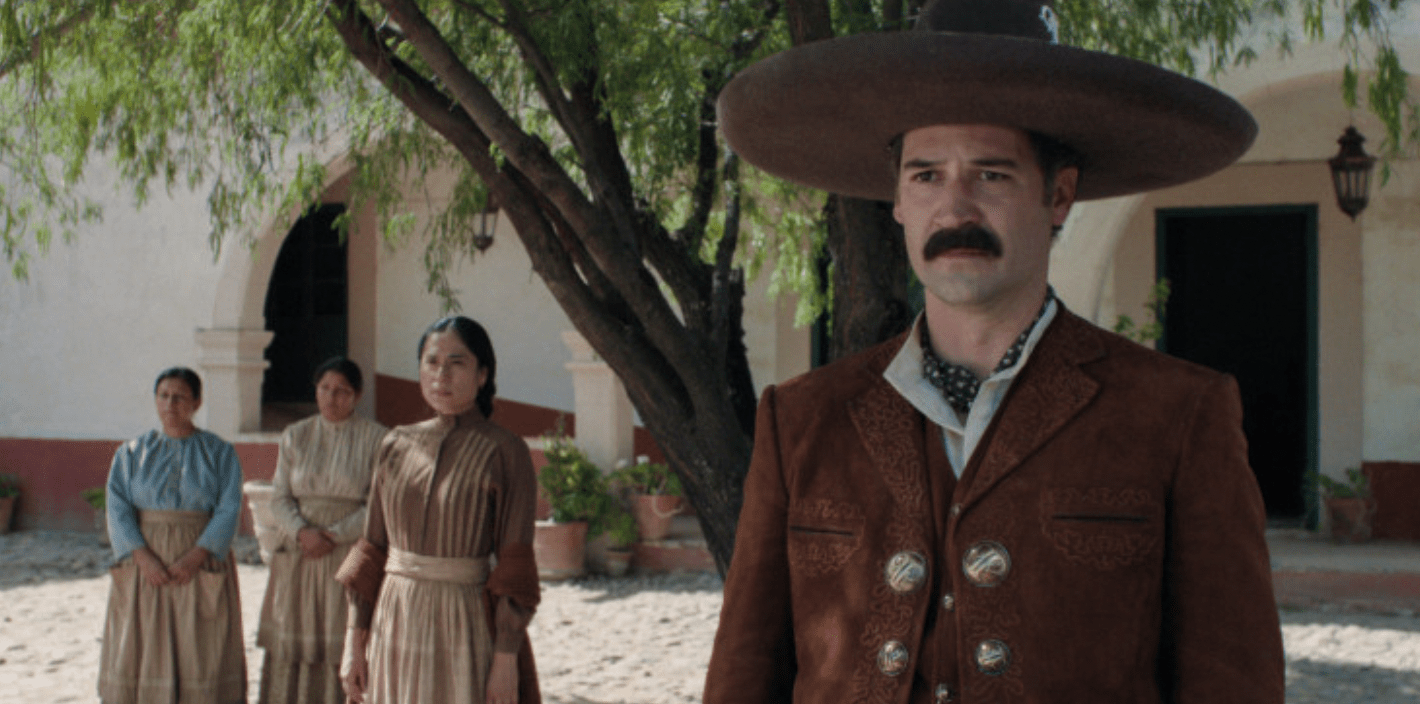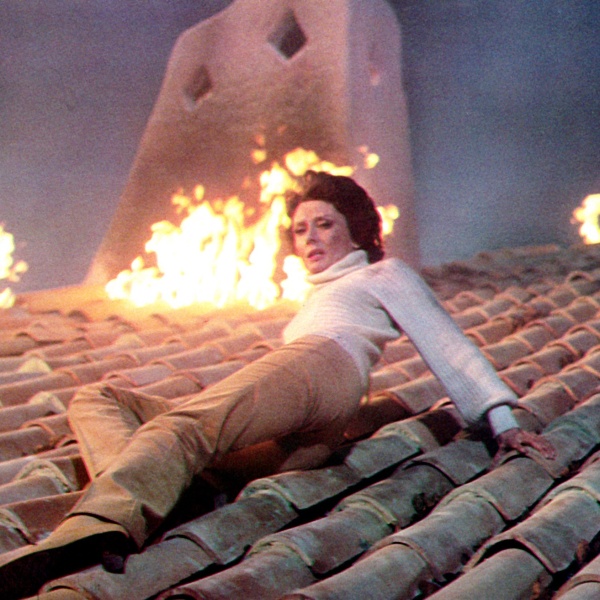When Juan Preciado (Tenoch Huerta) rides into a nameless Mexican village, he only has one thing on his mind: finding his father, a man by the name of Pedro Páramo. Juan has lived his entire adult life without a relationship with Pedro, and he promised his dying mother that he would track his father down and refuse to leave until the man gave him everything to which he was entitled.
That phrasing would come back to haunt him, as it turns out that his birthright inheritance comes not in the form of material wealth, but a lifetime of trauma that Páramo inflicted upon his neighbors. Juan asks every villager he meets for help locating the elusive Pedro Páramo, and is eventually led to an empty house whose rooms all contain memories of his father’s sins that Juan is able to witness in real time.
Rodrigo Prieto‘s adaptation of Juan Rulfo’s 1955 novel, a landmark work of Mexican magical realism, is the kind of film that would be failed by a traditional summary. Its plot is aggressively nonlinear, fading between perspectives as its hero allows generations of muddled trauma stemming from the sins of his bloodline to wash over him. We learn that Pedro Páramo (Manuel García-Rulfo) was a menace to everyone around him. He fathered countless illegitimate children that he never acknowledged, frequently worked to cover up the rapes and assaults committed by the one son he did claim, tormented his village with predatory business practices, and was involved in some very suspicious deaths. As Juan roams between rooms in this purgatory-like house, he’s able to witness these evils through the eyes of Father Renteria (Roberto Sosa), a local priest who struggles to find a balance between the purity of the scriptures and the pragmatism required to live among humans; his niece who suffered sexual abuse at the hands of Pedro’s associates; and a coterie of the man’s business partners, hired help, and casual acquaintances.
Prieto — a legendary cinematographer who shot “The Irishman,” “Killers of the Flower Moon,” and “Barbie” before stepping into the director’s chair on his own — translates Rulfo’s prose to the big screen with all of the visual mastery that cinephiles have come to expect. But while there’s still every reason to believe he has a bright directing career ahead of him, the storytelling of “Pedro Páramo” is too muddy, lethargic, and repetitive to make much of a narrative impact. Much of that is likely intentional, as the film prioritizes the overwhelming evil that Páramo exudes over any specific plot point. But the character of Juan is too one-dimensional to elicit sufficient audience investment in the tragic memories he encounters.
Yet even when the storytelling falls short, “Pedro Páramo” never fails to offer up ideas worth pondering. The theme of forgiveness unsurprisingly looms heavily over the film, which oozes Catholicism from every frame. In his director’s statement, Prieto explained that part of his interest in the source material stemmed from its exploration of what he sees as the perverse effects that the Church had on colonial Mexico. Páramo is a perfect hypocrite, sinning freely and then heading to the confession booth to take advantage of his faith’s unlimited forgiveness policy. Renteria clearly wrestles with this, understanding that he has no choice but to absolve the man’s sins while struggling to watch him walk away and continue to inflict evils on the world. The film often casts its eye on the hypocrisies inherent in any strict orthodox interpretation of the Bible — or any faith for that matter. When a rapist can be forgiven in the eyes of God by simply apologizing, but his victim who commits suicide is damned to eternal punishment for defying the Lord’s will, it’s fair to ask what we’re really doing here. Prieto and screenwriter Mateo Gil repeatedly explore the many contradictions of religion that are brought out by complicated situations, but always reach the same conclusion: a loving God might be infallible, but the mortals tasked with interpreting his wishes most certainly are not.
For all of its narrative detours and dreamlike hallucinations, “Pedro Páramo” is held together by a single narrative question: can the evil of one man be intense enough to corrupt the goodness of everyone around him? Prieto and Gil’s answer seems to be an undeniable yes, but they raise an even uglier query by the time the credits roll. If we take for granted that the present can be irreparably ruined by our own evil nature, the only thing left to consider is whether it’s possible to save a future that’s already been poisoned by the aftershocks of our own sins.
Grade: C+
“Pedro Páramo” premiered at the 2024 Toronto International Film Festival. It will stream on Netflix on November 6.
Want to stay up to date on IndieWire’s film reviews and critical thoughts? Subscribe here to our newly launched newsletter, In Review by David Ehrlich, in which our Chief Film Critic and Head Reviews Editor rounds up the best reviews, streaming picks, and offers some new musings, all only available to subscribers.






